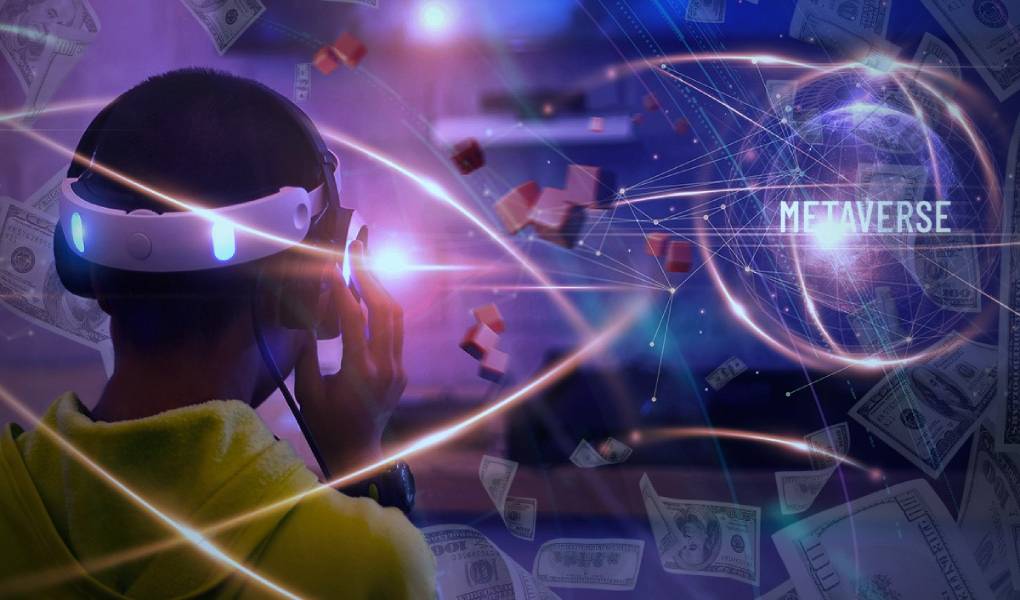When the World Wide Web officially launched for public use in 1993, everyone thought that the only way people could make money on the internet was through commerce and advertising. However, that belief was prevalent during the first iteration of the Web due to its limited capacity. In retrospect, the period from the early-1990s to 2004 now gets labeled as Web 1.0. Or the era before social networks appeared and changed the way humans interact. Today, the 2.0 stage has ended. We are now entering a new age of internet use, powered by blockchain technology.
Web3 is a term coined by Gavin Wood, Ethereum’s co-founder, and it refers to a World Wide Web where decentralization and token-based economics are principle ruling concepts. These also gave birth to one of the hottest trends currently running, metaverses. Though most now associate this word with Facebook’s announced VR social platform, virtual shared spaces that have their self-sustaining economies have been around for a while, with most of them operating on the Ethereum blockchain. These novel digital worlds have fostered creative avenues for users to make money online. Below we guide you through the four most popular methods.
Flipping/Renting Virtual Real Estate
Essentially, metaverses are vast maps, 3D environments that users can roam. Inside them, users can buy a section of the present world area and do as they please with it. Each plot is a non-fungible-token (NFT) or a unique digital asset that users can buy using a metaverse’s specific fungible token. For example, Decentraland is one of the most popular virtual shared spaces on the internet, and cheap plots of land on its map go for 3,750 MAMA, its fungible Ethereum-based token, which is that world’s currency.
Naturally, land can get acquired on designated marketplaces, where users have listed it for sale. However, at that point, it may cost a pretty penny. A better strategy is to look for up-and-coming metaverses and snag their land parcels during their initial coin offerings. Another approach is to attain estates in underdeveloped regions in established worlds. The same as real estate investors would do in the physical world, for crypto ones, this tactic involves waiting for the surrounding areas to get urbanized and land prices to jump.
Run an Honest Business
Since most blockchain virtual shared spaces allow users to claim digital real estate, owners of these plots of land can lease them or build structures on them. Many are picking the latter option and are using these constructions as a base for virtual businesses.
Most metaverses have their proprietary builder tools, which are simple drag and drop editors that require no coding knowledge. Others have software development kits that let users import 3D models and animations. Nonetheless, that is something that only tech-savvy individuals should explore who are well-versed in Typescript or other applicable programming languages.
Once someone has a virtual construction, they can pack it with digital items and hire employees. They can then begin offering a service of some variety. Some choose to run taverns, while others entertainment venues. Overall, there is little difference in operating metaverse businesses compared to ones in real life.
Gamble on Casino Games
As discussed above, metaverses are home to different entrepreneurial endeavors operated by individuals or companies. One of the most enjoyable pastimes in Decentraland is gambling. The platform’s users can enjoy this hobby in many gaming spots throughout this metaverse’s Vegas City district, its game of chance haven. Atari’s virtual casino can be found here, as can the Tominoya Casino, a Japanese-theme locale. Both offer traditional gambling picks to their patrons, like a game of poker Holdem, for example, and novel ones that are unavailable at brick-and-mortar establishments.
To get started with betting fun on virtual floors, metaverse users will have to equip themselves with their chosen venue’s accepted tokens. In the case of Atari’s Decentraland’s spot, these are $DG, MANA, Dai, and Atari’s native token.
Create Digital Handy In-World Items or Art
Digital NFT art is the latest craze sweeping the planet. To illustrate how crazy things have gotten, Beeple, a now renowned digital artist, sold his collage Everyday for $69 million in February 2021. Five months before this sale, he also unloaded his first minted NFT – First Drop for $6.6 million. So creating and selling NFT art is a feasible career path today.
Though hitting the quoted numbers may be impossible for most, there is money to be made by making digital items such as unique pieces of clothing and vehicles for standard metaverse users. These can get fashioned in 3D software like Blender and then auctioned off at primary or secondary metaverse marketplaces. Think of them as skins/items sold by video game companies for famous titles like Fortnite.
For more gambling news and reviews, visit OUSC.
